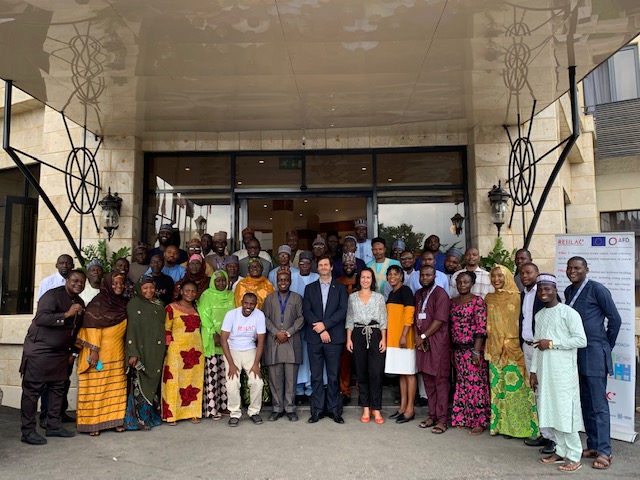
By Tosin Kolade
Borno State Government on Thursday commended efforts of Action Against Hunger, an international organisation in implementing livelihood support, social cohesion programme in its communities.
The Commissioner for Reconstruction, Rehabilitation, and Resettlement, Engr. Mustapha Gubio, said this at the RESILAC National Grant Closing workshop in Abuja.
Action Against Hunger is implementing the Lake Chad Inclusive Economic and Social Recovery (RESILAC) project with funding from the French Development Agency and European Union.
He said the intervention had impacted on the lives of 1,100 beneficiaries in livelihood support and more than 3,500 beneficiaries in social cohesion programmes.
The commissioner was represented by his Technical Advisor, Mr Bitrus Mshelia.
He said the RESILAC project had seen livelihood activities in Lake Chad territories that were mostly impacted by security crisis and effects of climate change.
“The RESILAC project has built the capacity of the people to be resilient, after recovering from insurgency. By and large, these are people who can barely eat, who can barely fend for themselves and who are from the IDP camps.
“For one local government, we are talking about a total of 1,100 for livelihood support, if you talk about social cohesion, we have over 3,500 people from diverse background.
“And even the repentant Boko Haram members are currently being reintegrated into their communities.
“For this project, we have tangible things that you can see, you can go to the communities and you will see young women fishing, rearing animals, ram fattening, cow fattening, baking and sewing.
“These are part of the livelihood support, I remember those in the poultry programme getting starter packs, they got up to 100 birds, feeds up to maturity levels before selling the birds, they have enough to start, without the support of any other person.’’
Gubio said communities had taken ownership of the projects, saying this would promote sustainability of all achievements.
Babagoni Shettima, Economic and Social Recovery Coordinator, Action Against Hunger, said the project had strengthened human capital and social cohesion, by improving the social cohesion of the population.
This, he also said was through support for development and psychosocial support for the victims of armed groups, adding that they also supported agricultural micro-entrepreneurship and apprenticeships.
Shettima said since the inception of the project in 2018, a total of 52,000persons benefited in Jere, Monguno and Kukawa LGAs.
“About 38,463 persons benefitted in social cohesion activities, while 3,966 persons benefitted in our mental health psychosocial support.
“They were given the skills to withstand shock and trauma whenever they occurred, we have also rehabilitated water points and repaired nine boreholes.’’
He listed challenges of insecurity, which led to the withdrawal of its workers in Monguno and Kukawa LGAs, adding that the decision of the state government to return Internally Displaced Persons (IDPs) to their ancestral homes also limited their efforts.
Mr Temitayo Omole, the Programme Manager, Social Sector and Human Development, EU Delegation to Nigeria, said there was the need for additional support to bring resilience to the Lake Chad region.
Omole, while commending the support of Borno Government, said there was the need for renewed commitment from all partners in improving the lives of the population.
He urged all participants to come up with recommendations that would help in future programme planning and implementation.
Mr Xavier Muron, the Country Director, French Development Agency, said implementing projects in hostile environments called for smart approach.
He said huge achievements from the RESILAC project were impressive, saying that there may soon be an extension of the project. (NAN)





